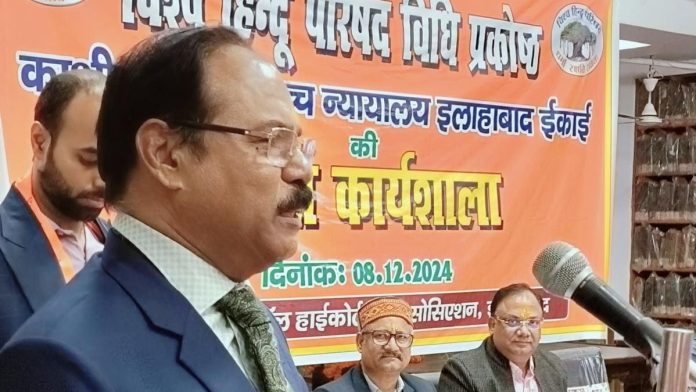An impeachment notice filed against Allahabad High Court judge Justice Shekhar Yadav—over his controversial anti-Muslim remarks—has cleared a critical procedural hurdle, with at least 50 Rajya Sabha MPs confirming their signatures. The notice was filed in December 2024 by 54 opposition MPs after Justice Yadav’s incendiary speech at a Vishwa Hindu Parishad (VHP) event went viral for its inflammatory content.
According to The Indian Express, the Rajya Sabha Secretariat had sought authentication of the signatures through emails and phone calls in March and May. Out of 54 MPs, 44 have verified their signatures so far. The process was complicated by a mismatch in nine signatures and a duplicate signature from MP Sarfaraz Ahmed, which he clarified was an error, confirming he signed only once—bringing the total to 54 valid signatures.
The impeachment process, governed by the Judges (Inquiry) Act, 1968, requires at least 50 Rajya Sabha MPs or 100 Lok Sabha MPs to initiate proceedings.
Notably, 11 MPs, including senior leaders like Kapil Sibal, P. Chidambaram, and Sushmita Dev, had not yet verified their signatures as of May 23. Some were unaware of the Secretariat’s communication, while others cited scheduling issues. Kapil Sibal, who spearheaded the notice, criticized the delay and urged that if verification was an issue, the notice should be formally rejected so the matter could be taken to the Supreme Court.
Justice Yadav’s remarks, made during a lecture on the Uniform Civil Code (UCC) at the Allahabad High Court Bar Association library on December 8, 2024, ignited widespread criticism. In his 34-minute speech, he declared:
“I have no hesitation in saying that this is Hindustan… and the country will run according to the majority who live in Hindustan.”
He accused Muslim society of fostering intolerance in children through exposure to violence and animal slaughter and used the slur “kathmulla” to describe Muslims practicing polygamy and triple talaq. He characterized such practices as “fatal” to India’s progress and asserted that the country must function according to the “bahusankhyak” (majority) will.
The speech sparked outrage among legal professionals, civil society, and rights groups. The 21-page impeachment motion, initiated by Rajya Sabha MP Kapil Sibal, argued that Justice Yadav’s comments demonstrated clear bias against minorities and violated judicial neutrality.
Despite public outrage, the Supreme Court has not initiated an in-house inquiry against Justice Yadav. In June, the All India Lawyers’ Association for Justice (AILAJ) expressed concern over this inaction, calling it a worrying precedent.
Vice President and Rajya Sabha Chairman Jagdeep Dhankhar has not yet rejected the impeachment notice, and no specific timeline is prescribed under the law for such a decision.
The MPs behind the impeachment motion remain determined to pursue the matter. As more MPs continue to verify their signatures, the pressure mounts on the Rajya Sabha Chairman to either admit the motion or officially reject it—paving the way for judicial scrutiny in the Supreme Court.




